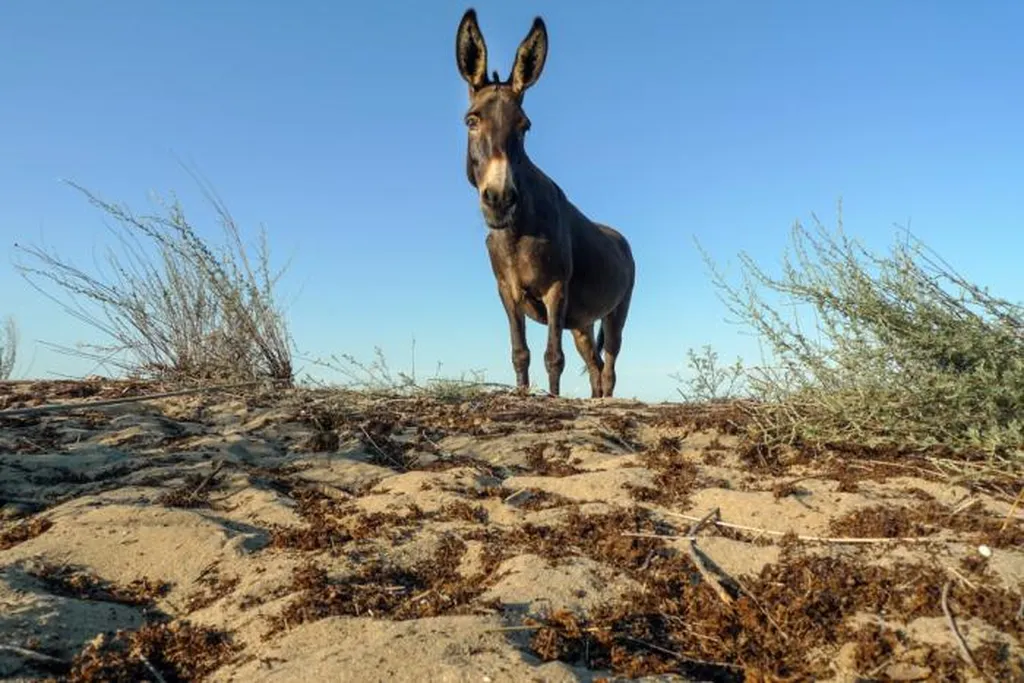In the rolling hills and sun-drenched valleys of Bulgaria, an age-old tradition is making a quiet comeback, one that could reshape the future of sustainable agriculture in Europe. Donkeys, once the backbone of rural economies, are experiencing a resurgence, and researchers like Victoria Marincheva from the Faculty of Veterinary Medicine at the University of Forestry in Sofia are at the forefront of this revival. Their work, published in the journal *Животновъдни науки* (translated as *Animal Science*), offers a compelling look at the current state and future potential of donkey husbandry, particularly in Bulgaria and across Europe.
Marincheva’s research highlights a stark contrast between global trends and those in Europe. While the worldwide donkey population is on the rise, particularly in Africa and Asia, many European countries are witnessing a decline. This is especially true in the Balkan region, where local donkey breeds are poorly documented and face the threat of extinction. “Despite a growing interest in donkey milk and related products, the phenotypic and genetic variation within these local breeds remains significant,” Marincheva explains. This variation could be a goldmine for breeders and farmers looking to enhance livestock diversity and sustainability.
The commercial implications of this research are substantial. Donkey milk, for instance, is gaining traction as a high-value, nutrient-rich product. Its market potential is immense, particularly in the health and wellness sectors, where demand for natural, sustainable products is soaring. Marincheva’s work suggests that Bulgaria, with its rich tradition in donkey breeding, could become a key player in this emerging market. By recognizing and rediscovering the value of local donkey breeds, Bulgaria could not only preserve its agricultural heritage but also tap into new economic opportunities.
But the benefits extend beyond milk. Donkeys have long been valued for their role in sustainable agriculture. Their ability to thrive in harsh conditions and their low environmental impact make them ideal for modern, eco-friendly farming practices. As the world grapples with the challenges of climate change and food security, donkeys could play a crucial role in promoting sustainable livestock diversity.
Marincheva’s research also sheds light on the need for better documentation and conservation efforts. By understanding the genetic and phenotypic variations within local donkey breeds, researchers and farmers can develop targeted breeding programs that enhance productivity and resilience. This could lead to the development of new, high-value products and the revitalization of rural economies.
The implications for the energy sector are equally compelling. As the world shifts towards renewable energy sources, the role of sustainable agriculture in reducing carbon footprints becomes increasingly important. Donkeys, with their low environmental impact and ability to thrive in diverse conditions, could become a key component of this transition. By integrating donkey husbandry into sustainable farming practices, the energy sector could benefit from a more resilient and eco-friendly supply chain.
In conclusion, Marincheva’s research offers a glimpse into the future of donkey husbandry in Europe. By recognizing the value of local breeds and investing in sustainable practices, Bulgaria and other European countries could unlock new economic opportunities and contribute to a more sustainable future. As the world continues to grapple with the challenges of climate change and food security, the humble donkey could emerge as a key player in the quest for a more sustainable and resilient agricultural system.

